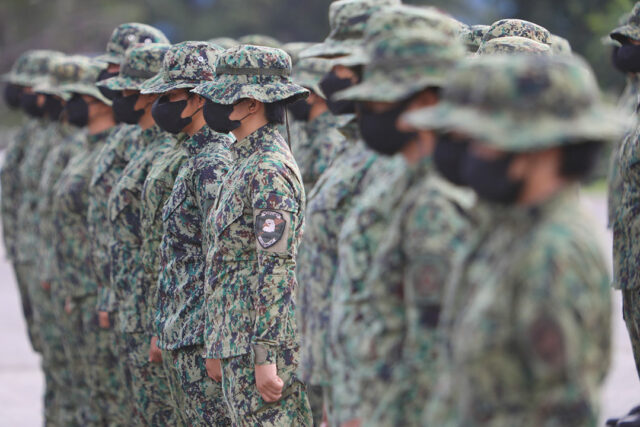PHL told to adopt human rights-based approach in anti-illegal drug strategy
By Kenneth Christiane L. Basilio
THE GOVERNMENT should look at revising the country’s Criminal Code by integrating harm-reduction strategies, ensuring a human-rights-based approach to curbing the illegal drug trade, according to human rights groups.
Harm reduction strategies should focus on addressing the health aspects of drug use, Karapatan Secretary-General Cristina E. Palabay said in an e-mail.
“There should be a comprehensive review and revision of laws under the Revised Penal Code and comprehensive drugs legislation, considering harm-reduction strategies to ensure public health and human rights approaches are considered,” she told BusinessWorld.
More than 20,000 drug suspects died from July 1, 2016 to Nov. 27, 2017 in the Duterte government’s anti-drug operations, according to a 2017 year-end accomplishment report from his office.
Congress should also look at providing prosecutorial power to the Commission on Human Rights (CHR) so it could hold into account human rights violators, Carlos H. Conde, a senior researcher at the Asia division of Human Rights Watch, told BusinessWorld in a separate e-mail.
“The CHR needs to be given teeth, specifically prosecutorial power, and to ensure it has all the resources it needs to carry out its mandate,” he said.
The House of Representatives committee on human rights is investigating extrajudicial killings and human rights violations under ex-President Rodrigo R. Duterte’s deadly drug war.
But Mr. Conde said the committee is “not entirely clear” about what it wants to achieve.
“Do they want amendments to existing laws? Do they have other specific proposed laws in mind?” he asked.
The hearing into the alleged human rights violations committed during the previous government could be a result of the spat between President Ferdinand R. Marcos, Jr. and Mr. Duterte, he added.
“Given the characters involved in the hearing, this looks like all for show,” he said. “This is quite possibly the result of the political infighting between the Duterte and Marcos camps.”
“The issue of extrajudicial killings in the drug war has become a convenient political weapon and is clearly being used as a leverage against the Dutertes,” Mr. Conde added.
The House committee could help hold the perpetrators of alleged human rights violations during Mr. Duterte’s drug war accountable if it’s being pursued with “genuine intent,” Ms. Palabay said.
“The inquiry can bolster the results of the preliminary examination of the International Criminal Court (ICC) and thus should result in not only pushing for the ICC’s investigation, but for the Philippines’ re-entry to the ICC,” she said.
The Philippines withdrew from the ICC in 2019 after the tribunal signaled its intent to investigate Mr. Duterte’s drug war.
The House committee will continue its hearings on Tuesday and Wednesday.











